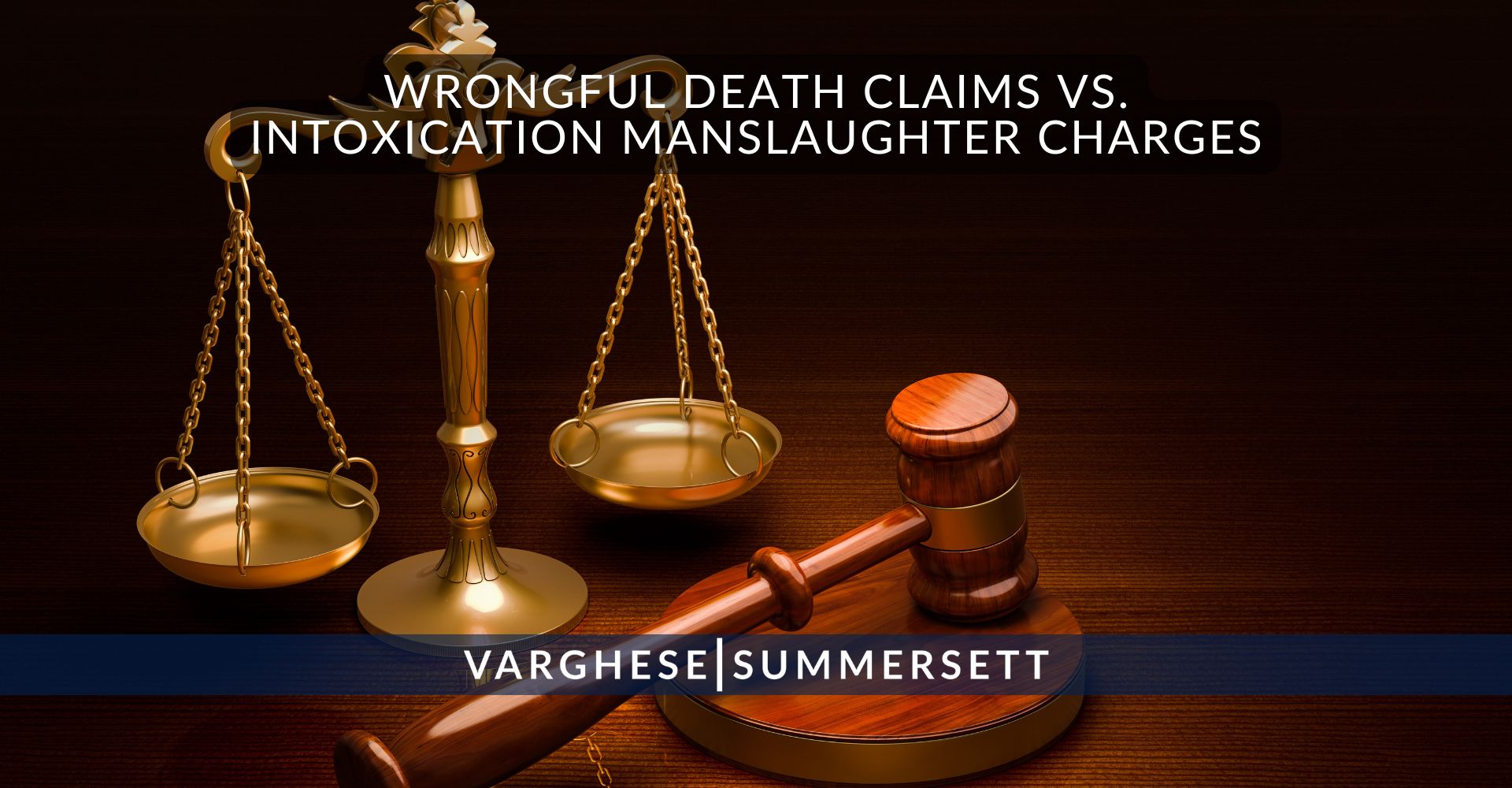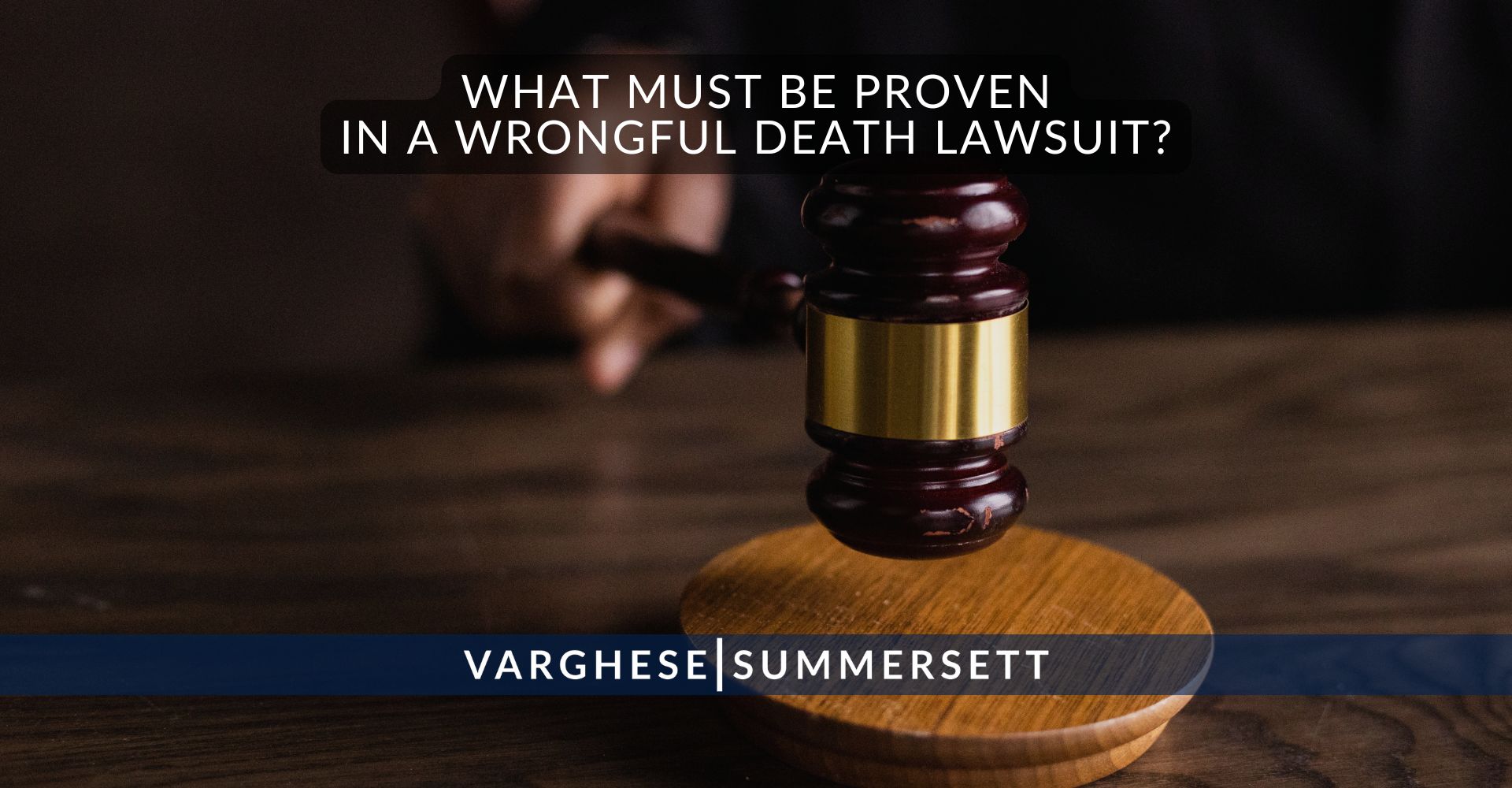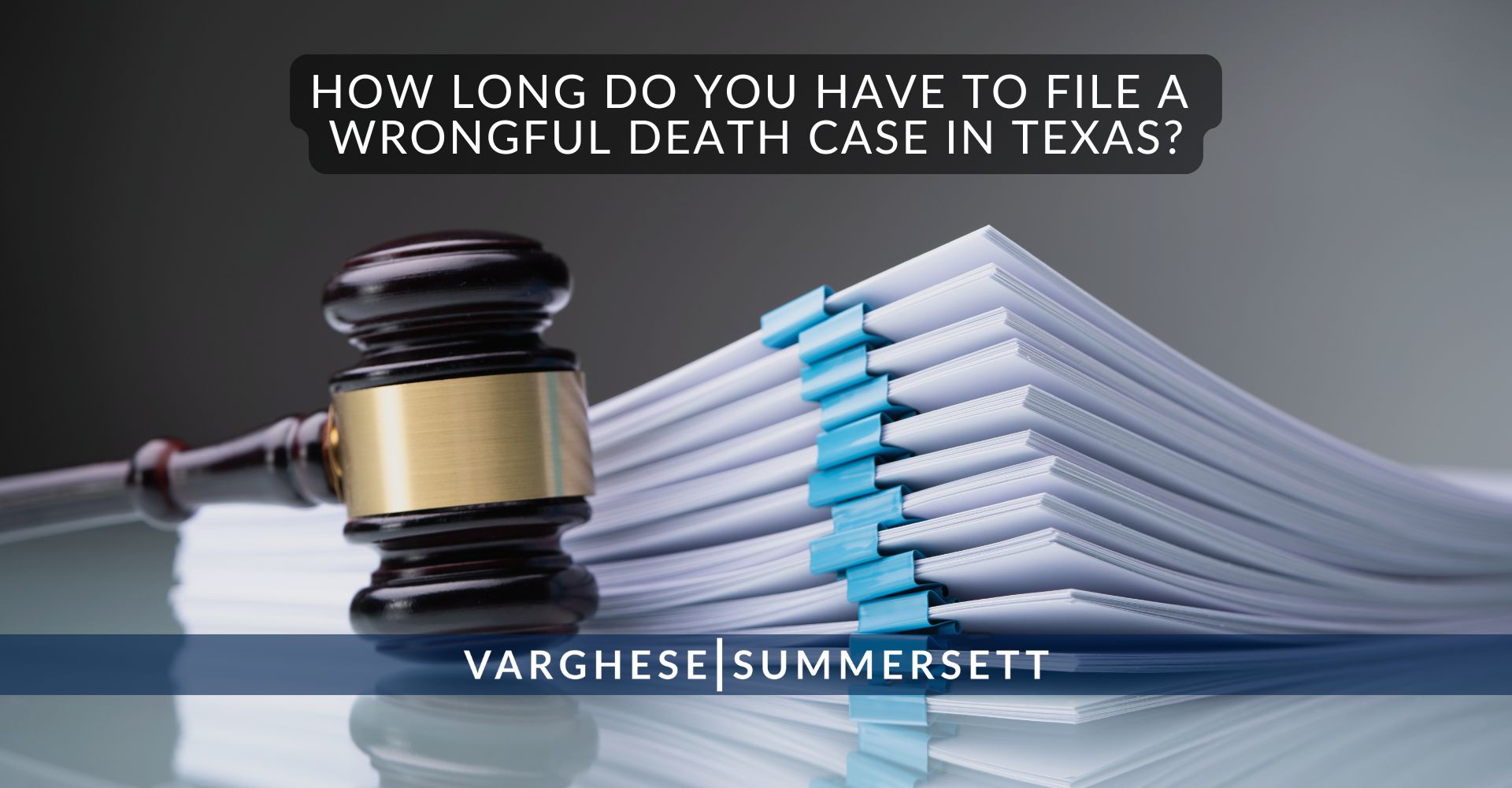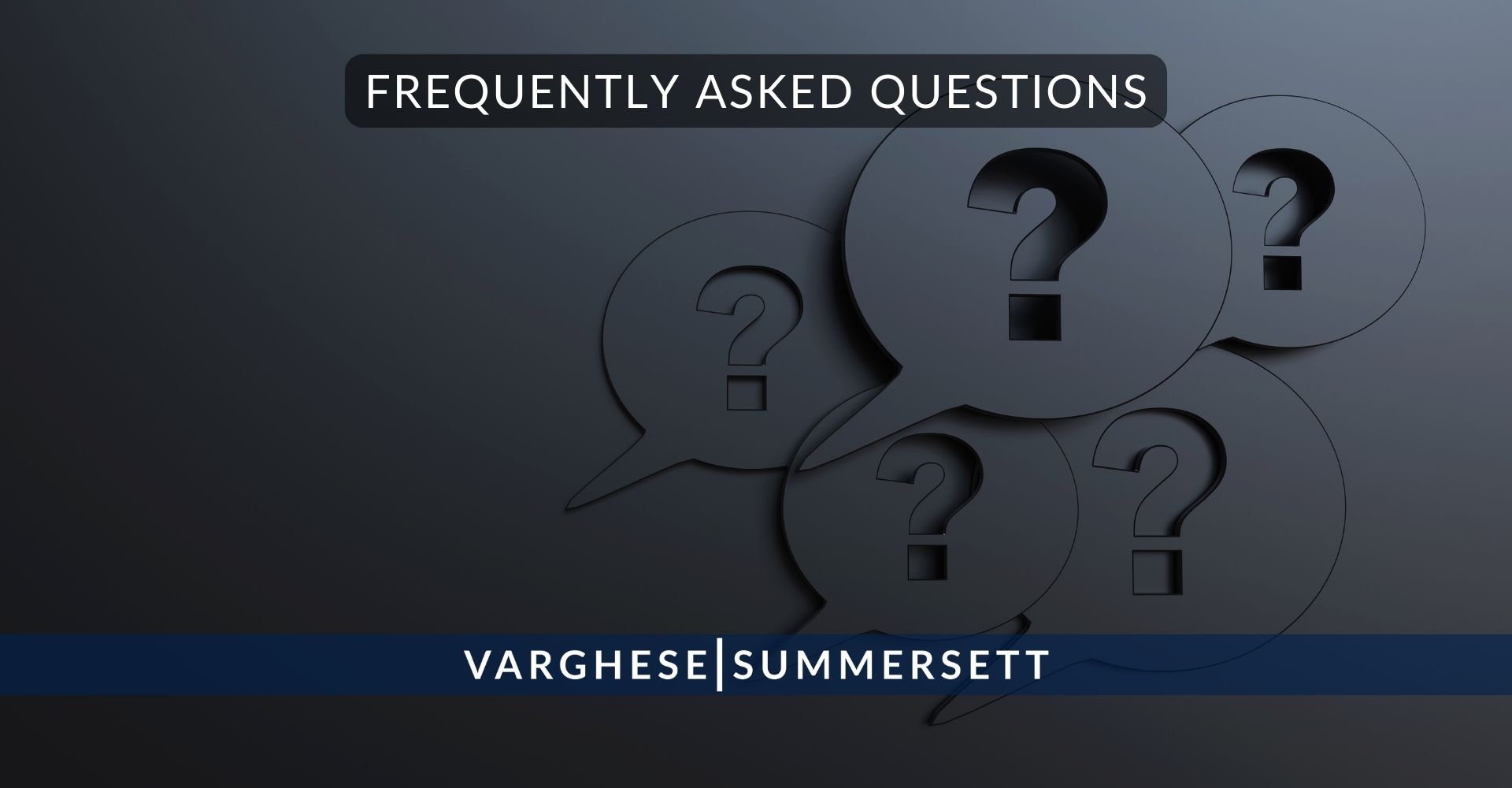Can You File a Wrongful Death Lawsuit After a Drunk Driving Death in Fort Bend County?
Yes. If you lost a loved one to a drunk driver in Fort Bend County, you have the legal right to file a wrongful death lawsuit against the person who killed them. This civil claim is completely separate from any criminal charges the driver may face. Even if the driver is charged with intoxication manslaughter, you can still pursue financial compensation for your family’s devastating loss.
A wrongful death lawsuit allows surviving family members to hold the drunk driver financially accountable. In some cases, you may also have claims against bars, restaurants, or social hosts who served alcohol to the driver before the crash. These civil cases can provide compensation for funeral costs, lost income, and the profound grief of losing someone you love.
We understand that no amount of money can bring back your loved one. But a wrongful death claim can ease the financial burden your family now faces and ensure the person responsible is held accountable beyond what the criminal justice system provides.
If your family is grieving after a drunk driving death in Fort Bend County, our attorneys can help you understand your legal options. Call us today for a free consultation.

The Prosecutor Is Not Your Attorney
This is one of the most important things families need to understand after losing a loved one to a drunk driver. When the Fort Bend County District Attorney’s Office files intoxication manslaughter charges, they are not representing you. They represent the State of Texas.
The prosecutor’s job is to prove the defendant broke the law and to seek punishment on behalf of society. Their goal is a conviction, not compensation for your family. They are not required to consult you about plea deals. They don’t have to take the case to trial if you want them to. They don’t owe you updates or explanations. You are a witness in their case, not their client.
This can feel deeply frustrating. You may want the prosecutor to fight harder, reject a plea offer, or pursue maximum penalties. But you have no control over those decisions. The criminal justice system was designed to punish wrongdoing and protect the public. It was not designed to make victims whole.
What the Criminal Case Cannot Do for You
Even if the drunk driver is convicted of intoxication manslaughter and sentenced to 20 years in prison, the criminal case will not:
- Pay for your loved one’s funeral
- Replace the income your family depended on
- Compensate you for your grief, trauma, or loss of companionship
- Cover the medical bills from your loved one’s final hours
- Provide financial security for children who lost a parent
Restitution is sometimes ordered in criminal cases, but it’s limited to direct, documented expenses and is notoriously difficult to collect. It comes nowhere close to the full compensation available through a civil wrongful death lawsuit.
A wrongful death lawsuit is your case. You control it. You decide whether to settle or go to trial. You determine what justice looks like for your family.

How Is a Wrongful Death Claim Different From Intoxication Manslaughter Charges?
Many families don’t realize that criminal charges and civil lawsuits are two completely different legal processes with different purposes, different standards, and different outcomes.
Criminal Case: The State vs. The Drunk Driver
When a drunk driver kills someone in Texas, the state can file criminal charges for intoxication manslaughter under Texas Penal Code § 49.08. This is a second-degree felony punishable by 2 to 20 years in prison and fines up to $10,000. The Fort Bend County District Attorney’s Office prosecutes these cases on behalf of the State of Texas, not on behalf of your family.
You have the right to be notified about major developments in the case. You may be asked to provide a victim impact statement. But you don’t get to decide whether charges are filed, what plea offers are made, or whether the case goes to trial. Prosecutors make those decisions based on their assessment of the evidence, their caseload, and their judgment about what serves the public interest.
Civil Case: Your Family vs. The Drunk Driver
A wrongful death lawsuit is your family’s case. You control it. Under Texas Civil Practice and Remedies Code Chapter 71, surviving family members can sue the drunk driver directly for the harm their actions caused. You hire your own attorney. You decide whether to accept a settlement or go to trial. The goal is compensation for your loss, not punishment for the defendant.
The burden of proof is also different. While prosecutors must prove criminal guilt “beyond a reasonable doubt,” you only need to prove civil liability by a “preponderance of the evidence.” This means showing it’s more likely than not that the driver caused your loved one’s death. This lower standard means families can win wrongful death lawsuits even when criminal cases result in acquittals or reduced charges.

What Must Be Proven in a Wrongful Death Lawsuit?
To win a wrongful death case after a drunk driving crash, your attorney must prove four legal elements. These elements establish that the defendant’s negligence caused your loved one’s death and that your family suffered damages as a result.
Element 1: Duty of Care
The first element requires showing that the defendant owed your loved one a legal duty of care. Every driver on Texas roads has a duty to operate their vehicle safely and follow traffic laws. This includes the duty not to drive while intoxicated. This element is straightforward in drunk driving cases because all motorists owe this duty to everyone else on the road.
Element 2: Breach of Duty
The second element requires proving the defendant breached their duty of care. Driving with a blood alcohol concentration of 0.08% or higher is a breach of the duty to drive safely. So is driving while impaired by alcohol to any degree that affects normal use of mental or physical faculties. Evidence of breach typically includes blood or breath test results, officer observations, field sobriety test performance, witness testimony about the driver’s behavior, and toxicology reports.
Element 3: Causation
The third element requires proving the defendant’s breach of duty caused your loved one’s death. This has two parts. First, you must show “cause in fact,” meaning your loved one would not have died but for the defendant’s intoxicated driving. Second, you must show “proximate cause,” meaning the death was a foreseeable result of driving drunk. In most drunk driving fatality cases, causation is clear. The intoxicated driver caused a crash, and someone died as a result.
Element 4: Damages
The fourth element requires proving your family suffered actual damages because of your loved one’s death. This includes economic damages like funeral expenses, medical bills, and lost income. It also includes non-economic damages like mental anguish, loss of companionship, and loss of guidance. Documenting these damages thoroughly is essential to maximizing your recovery.
How Negligence Per Se Strengthens Your Case
Texas recognizes a legal doctrine called “negligence per se” that can make drunk driving wrongful death cases easier to prove. When a defendant violates a statute designed to protect public safety (like laws against drunk driving), and that violation causes the type of harm the statute was meant to prevent (like a fatal crash), the defendant is presumed negligent.
This means if the drunk driver was arrested with a BAC over 0.08% or was convicted of intoxication manslaughter, you may not need to independently prove they were negligent. Their violation of Texas drunk driving laws establishes negligence as a matter of law. Your attorney still needs to prove causation and damages, but the negligence element is significantly easier to establish.

Who Can File a Wrongful Death Lawsuit in Texas?
Texas law limits who can bring a wrongful death claim. Under the Texas Wrongful Death Act, only certain family members have the legal right to sue.
Eligible family members include:
- The surviving spouse of the deceased
- Children of the deceased (including adopted children)
- Parents of the deceased
Any of these family members can file a lawsuit individually or together. If no eligible family member files a claim within three months of the death, the executor or administrator of the deceased person’s estate may file on behalf of all eligible family members.
Siblings, grandparents, aunts, uncles, and other relatives generally cannot file wrongful death claims in Texas, even if they were very close to the deceased. This can be heartbreaking for families with non-traditional structures, but these are the boundaries Texas law sets.

What Happens When a Child Has the Right to Bring a Wrongful Death Claim?
When a drunk driver kills a parent, the surviving children have the legal right to file a wrongful death lawsuit. But minor children cannot file lawsuits on their own behalf. Texas law requires an adult to act for them.
How a Minor’s Claim Is Filed
A parent or legal guardian typically files the wrongful death lawsuit on behalf of a minor child. If both parents are deceased, a court-appointed guardian or “next friend” can file the lawsuit for the child. A “next friend” is an adult who acts in the child’s best interest in legal proceedings.
The court closely supervises cases involving minor children to protect their interests. Any settlement must be approved by the court to ensure it’s fair and in the child’s best interest. Settlement funds for minors are typically placed in a trust or structured settlement that the child can access when they reach adulthood.
Special Considerations for Children’s Claims
Children’s wrongful death claims often involve substantial damages because of the long-term impact of losing a parent. A child who loses a mother or father at age 5 will spend decades without parental guidance, support, and love. Courts recognize this when valuing claims for loss of parental consortium.
Texas also has special statute of limitations rules for minors. While adults generally have two years to file a wrongful death claim, a minor’s deadline may be extended. The clock typically doesn’t start running until the child turns 18, though there are exceptions and complications. This protection exists because children cannot be expected to understand or protect their own legal rights.
Our attorneys have represented children who lost parents to drunk drivers. We work with guardians, financial advisors, and the court to ensure minor children receive full compensation and that their funds are protected until they’re old enough to manage them responsibly.
When Multiple Family Members Have Claims
In many drunk driving death cases, multiple family members have the right to file claims. A surviving spouse and children may all have separate claims. Parents of the deceased may also have claims. These claims can be filed together in a single lawsuit or separately.
When minor children and adult family members both have claims, coordination is essential. Our attorneys work to ensure that settlements or verdicts are structured fairly so that children’s interests are protected while also addressing the needs of surviving spouses or other family members.

What Compensation Can You Recover in a Fort Bend County Wrongful Death Case?
A wrongful death lawsuit seeks to compensate your family for both the financial and emotional losses caused by your loved one’s death. Texas allows recovery for several types of damages.
Economic Damages
These cover the financial losses your family has suffered and will continue to suffer:
- Funeral and burial expenses: The costs of laying your loved one to rest
- Medical bills: Any emergency treatment or hospital care before death
- Lost earning capacity: The income your loved one would have earned over their lifetime
- Lost benefits: Health insurance, retirement contributions, and other employment benefits
- Loss of inheritance: The money or assets you would have inherited if your loved one had lived a full life
- Loss of services: The value of household tasks, childcare, and other contributions your loved one provided
Non-Economic Damages
These address the emotional and relational losses that are harder to quantify but equally real:
- Mental anguish: The emotional suffering family members experience
- Loss of companionship: The relationship, guidance, and presence you’ve lost
- Loss of consortium: For spouses, the loss of the marital relationship
- Loss of parental guidance: For children who’ve lost a parent
Exemplary (Punitive) Damages
In drunk driving wrongful death cases, Texas courts may award exemplary damages to punish the defendant for their reckless conduct. Choosing to drive while intoxicated shows a conscious disregard for human life. Courts recognize this and often allow punitive damages to send a message that such behavior will not be tolerated.

Can You Sue a Bar or Restaurant After a Drunk Driving Death?
Yes, in certain circumstances. Texas has what’s called a “Dram Shop” law that allows victims to sue alcohol providers who contributed to a drunk driving crash.
Under Texas Alcoholic Beverage Code § 2.02, you can hold a bar, restaurant, or other alcohol seller liable if they served alcohol to a person who was “obviously intoxicated to the extent that he presented a clear danger to himself and others.” The establishment must have been aware of the intoxication at the time of service.
Fort Bend County has a thriving restaurant and nightlife scene in areas like Sugar Land, Missouri City, and Richmond. When bars and restaurants over-serve patrons who then get behind the wheel and kill someone, they share responsibility for that death.
What You Need to Prove in a Dram Shop Case
Dram shop cases require proving specific elements:
- The establishment sold or served alcohol to the driver
- The driver was obviously intoxicated at the time of service
- The intoxication was a proximate cause of the crash and death
Gathering this evidence requires quick action. Surveillance footage gets deleted. Witnesses’ memories fade. Credit card and bar tab records can disappear. If you believe a bar or restaurant contributed to your loved one’s death, contacting an attorney immediately is essential.
Social Host Liability in Texas
Texas law treats social hosts differently than commercial establishments. Generally, adults who serve alcohol at private parties are not liable if a guest drives drunk and kills someone. There is one major exception: if a host serves alcohol to a minor (someone under 21), and that minor causes a drunk driving death, the host can be held liable under Texas Alcoholic Beverage Code § 2.02(c).

How Long Do You Have to File a Wrongful Death Lawsuit in Texas?
Texas law gives you two years from the date of your loved one’s death to file a wrongful death lawsuit. This deadline, called the statute of limitations, is strict. If you miss it, you lose your right to sue forever.
Two years might seem like a long time when you’re in the immediate aftermath of losing someone. But between funeral arrangements, dealing with your loved one’s affairs, and trying to help your family cope, time passes quickly. Insurance companies know this. They may delay, hoping you’ll miss your deadline or become too exhausted to fight.
Starting the legal process early also helps preserve evidence. Accident scene conditions change. Vehicles get repaired or scrapped. Witnesses relocate. Phone records and surveillance footage get deleted. The sooner your attorney can begin investigating, the stronger your case will be.
Remember that special rules may apply when minor children have claims. While the statute of limitations for adults is generally two years, minors may have additional time. However, waiting until a child turns 18 to file can make evidence much harder to obtain. The better approach is usually to file promptly with an adult acting on the child’s behalf.

What Happens If the Criminal Case Is Still Pending?
You don’t have to wait for the criminal case to finish before filing your wrongful death lawsuit. In fact, there are strategic reasons to move forward with your civil case while the criminal prosecution is ongoing.
Remember, the prosecutor handling the criminal case is not your lawyer. They may make decisions you disagree with. They may accept a plea deal you think is too lenient. They may decline to take the case to trial. Your wrongful death lawsuit gives you an avenue for accountability that doesn’t depend on what the prosecutor decides to do.
That said, many families choose to wait and see what happens in the criminal case first. A criminal conviction can be powerful evidence in your civil lawsuit. If a jury finds the driver guilty of intoxication manslaughter beyond a reasonable doubt, proving civil liability becomes much easier because of the negligence per se doctrine.
The criminal case can also reveal evidence through discovery that helps your civil case. Police reports, toxicology results, witness statements, and accident reconstruction findings from the criminal investigation can all support your wrongful death claim.
Our attorneys can advise you on the best timing strategy for your specific situation. We coordinate with prosecutors when appropriate and monitor the criminal case closely to protect your family’s interests, even though we understand the prosecutor’s priorities may differ from yours.

What If the Drunk Driver Has No Money or Insurance?
This is a common concern for families. Winning a wrongful death lawsuit doesn’t help if the defendant can’t pay the judgment. Our attorneys thoroughly investigate all potential sources of recovery before recommending whether to pursue a case.
Potential sources of compensation include:
- Auto insurance: The driver’s liability coverage, which in Texas must be at least $30,000 per person
- Umbrella or excess policies: Additional coverage the driver may have
- Employer liability: If the driver was working at the time of the crash
- Dram shop claims: Bars and restaurants typically carry significant liability insurance
- Your own uninsured/underinsured motorist coverage: Your policy may cover the gap
- Personal assets: Property, savings, or other assets the driver owns
In one Fort Bend County case, the drunk driver who killed our client’s mother had only minimum insurance coverage. But our investigation revealed he was driving home from a work event where his employer had provided alcohol. We pursued a claim against the employer and recovered substantial compensation that the driver alone could never have paid.

What to Do After Losing a Loved One to a Drunk Driver
The weeks and months after losing a family member are overwhelming. While your primary focus should be on grieving and taking care of yourself and your family, there are steps you can take to protect your legal rights.
Preserve Evidence
Keep copies of the police report, any photographs from the scene, and your loved one’s personal effects. Don’t repair or dispose of any damaged property. If your loved one had a phone, preserve it. These items may contain important evidence.
Document Everything
Keep records of all expenses related to your loved one’s death, including medical bills, funeral costs, and time you’ve missed from work. Write down your memories of your relationship and how the loss has affected your daily life. These notes will help your attorney understand the full impact of your loss.
Be Careful What You Say
Insurance adjusters may contact you soon after the crash. They may seem sympathetic, but their job is to minimize what the insurance company pays. Don’t give recorded statements or sign any documents without talking to an attorney first. You’re not required to speak with them, and doing so rarely helps your case.
Understand Your Role in the Criminal Case
You may receive notifications from the Fort Bend County District Attorney’s Office about the criminal case. You may be asked to provide a victim impact statement or testify as a witness. While participating in the criminal process can feel meaningful, remember that the prosecutor represents the state, not you. Their decisions about charges, plea offers, and sentencing recommendations are theirs to make. If you want an attorney who answers to you and fights for your family’s interests specifically, you need to hire a civil attorney to file a wrongful death lawsuit.
Contact an Attorney
A wrongful death attorney can take the legal burden off your shoulders while you focus on healing. We can deal with insurance companies, investigate the crash, and build your case while you take care of your family.

Why Varghese Summersett Is the Right Choice for Your Wrongful Death Case
Not every law firm is equipped to handle a wrongful death case after a drunk driving death. These cases require a unique combination of skills: the ability to prove negligence in civil court, deep knowledge of intoxication cases, and the resources to take on insurance companies and go to trial if necessary. At Varghese Summersett, we bring all of this to every case we handle.
Unmatched Experience in Intoxication Cases
Our attorneys have handled more intoxication-related trials than most law firms in Texas. We have spent years in courtrooms across the state proving and defending DWI, DWI with child passenger, intoxication assault, and intoxication manslaughter cases. This experience gives us an intimate understanding of how these cases work, from the science of blood alcohol testing to the procedures police must follow during investigations.
We know what evidence matters in intoxication cases. We understand how to interpret toxicology reports, challenge flawed blood draws, and use accident reconstruction to prove exactly what happened. When we walk into a courtroom or a settlement negotiation, the other side knows we have the knowledge and experience to back up every claim we make.
Former Prosecutors Who Know How to Prove Cases
Several of our attorneys are former prosecutors who spent years on the other side of the courtroom. We didn’t just handle intoxication cases; we tried them. We presented evidence to juries and secured convictions. We know what it takes to prove a case beyond a reasonable doubt, the highest standard in the American legal system.
Why does this matter for your civil case? Because if we can prove a case beyond a reasonable doubt, we can certainly prove it by a preponderance of the evidence, the lower standard used in civil court. Our background as prosecutors means we build cases that are airtight. We gather evidence the way we would if we had to convince a jury that someone was guilty of a crime. When insurance companies see the strength of our cases, they understand we’re prepared to win at trial if they don’t offer fair compensation.
Our prosecutorial experience also helps us understand what’s happening in the criminal case against the drunk driver. We can anticipate how the prosecution will proceed, what evidence they’ll rely on, and how the criminal case might affect your civil claim. This insight allows us to coordinate strategy in ways that other firms simply cannot.
A Personal Injury Team That Has Recovered Millions for Texans
While our criminal law expertise sets us apart, our personal injury team has the skills and track record to maximize your recovery. We have recovered millions of dollars for Texas families in wrongful death cases, car accidents, truck accidents, and other serious injury claims.
We don’t just file lawsuits and hope for the best. We investigate every potential source of recovery. We work with accident reconstructionists, medical experts, economists, and life care planners to document the full extent of your loss. We calculate not just what your family has lost today, but what you’ll lose over decades without your loved one’s income, guidance, and presence.
Insurance companies know which firms will fight and which will accept lowball offers. They know we have the resources to take cases to trial and the courtroom experience to win. This reputation means we often secure better settlements without ever stepping into a courtroom, because the other side knows what will happen if we do.
A Team of Over 70 Legal Professionals
Varghese Summersett is not a small operation. We have a team of over 70 attorneys and legal professionals across offices in Fort Worth, Dallas, Houston, and Southlake. This means we have the resources to handle complex cases that smaller firms cannot. We can dedicate investigators, paralegals, and attorneys to your case without cutting corners.
Our size also means we can absorb the costs of litigation. Wrongful death cases require expert witnesses, accident reconstruction, medical records analysis, and sometimes years of legal work before resolution. We advance all of these costs and only get paid if we recover compensation for your family.
We Understand What You’re Going Through
Beyond our legal credentials, we approach every wrongful death case with compassion. We know you’re not just a case number. You’ve lost someone you love to a senseless, preventable tragedy. You’re grieving while also trying to figure out how to pay bills, take care of your family, and find some measure of justice.
When you work with Varghese Summersett, you’ll have attorneys who listen to your story, answer your questions, and keep you informed every step of the way. We’ll handle the legal battle so you can focus on healing and taking care of your family.

Frequently Asked Questions About Wrongful Death Claims After Drunk Driving Deaths
How much is a wrongful death case worth in Texas?
Every case is different. The value depends on factors like your loved one’s age and earning capacity, the strength of the evidence, and the available insurance coverage. Cases involving young, high-earning victims with clear liability and significant insurance coverage are worth more than cases with older victims, disputed liability, or minimal coverage. Our attorneys can evaluate your specific situation and give you a realistic assessment of potential recovery.
Can I still sue if the drunk driver was killed in the crash?
Yes. You can file a wrongful death claim against the drunk driver’s estate. Their auto insurance policy will still provide coverage, and any assets in their estate may be available to satisfy a judgment.
What if I was a passenger in the drunk driver’s car?
You still have the right to file a wrongful death claim. Passengers are innocent victims, and Texas law protects their right to seek compensation even when the crash was caused by the driver they were riding with.
Why can’t the prosecutor get me compensation?
The prosecutor represents the State of Texas, not you or your family. Their job is to prove the defendant committed a crime and seek appropriate punishment. While restitution is sometimes ordered in criminal cases, it’s limited and difficult to collect. A wrongful death lawsuit is the legal process designed to compensate victims’ families.
My child lost their father. How do I file a lawsuit for them?
As the child’s parent or legal guardian, you can file a wrongful death lawsuit on their behalf. The court will oversee the case to protect your child’s interests, and any settlement must be approved by a judge. Settlement funds for minors are typically placed in a protected account or structured settlement.
Do I need an attorney to file a wrongful death lawsuit?
While you’re legally allowed to represent yourself, wrongful death cases are complex. They involve investigating the crash, proving the four elements of negligence, identifying all liable parties, calculating damages, negotiating with multiple insurance companies, and potentially going to trial. Insurance companies take unrepresented families less seriously and typically offer lower settlements. An experienced attorney significantly increases both your chances of success and the amount you recover.
How long will the case take?
Most wrongful death cases in Fort Bend County take one to three years from filing to resolution. Cases that settle without trial resolve faster than those that go to court. Complex cases with multiple defendants or disputed liability take longer. We keep our clients informed throughout the process and work efficiently while never sacrificing the quality of your case for speed.

Get Help From Our Experienced Texas Wrongful Death Attorneys
Losing a loved one to a drunk driver leaves you with grief, anger, and a thousand questions. The criminal justice system may bring some accountability, but the prosecutor works for the state, not for you. If you want an attorney who answers to your family and fights for your interests, you need to file a wrongful death lawsuit.
At Varghese Summersett, we combine what other firms cannot: extensive trial experience in intoxication cases, the prosecutorial background to build cases at the highest burden of proof, and a personal injury team that has recovered millions for Texas families. We have the resources, knowledge, and dedication to hold drunk drivers and those who enabled them fully accountable.
We handle wrongful death cases on a contingency fee basis, meaning you pay nothing unless we recover compensation for your family. We advance all costs of litigation. You owe us nothing if we don’t win.
Your free consultation is a chance to get answers and understand your options. There’s no obligation, no pressure, and no cost. We just want to help you understand what your family can do next.
Call (281) 805-2220 today to speak with a wrongful death attorney who will listen to your story and fight for your family.